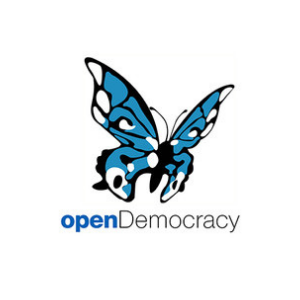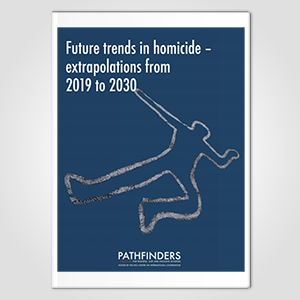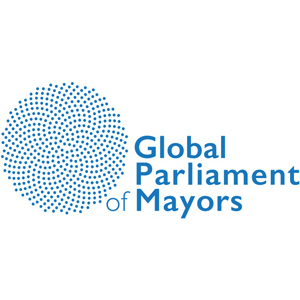
‘Negócio’ da droga dribla pandemia e sobrevive
Ao contrário da maioria das empresas que ainda padece com os efeitos da pandemia, o negócio das drogas ilícitas parece ter se adaptado muito mais rapidamente ao novo normal.

Ao contrário da maioria das empresas que ainda padece com os efeitos da pandemia, o negócio das drogas ilícitas parece ter se adaptado muito mais rapidamente ao novo normal.

The only surprise about Jair Bolsonaro’s diagnosis for COVID-19 was that it took him so long to test positive.

Most countries have actually experienced sustained declines in homicidal violence across several decades. Notwithstanding the disruptive effects of COVID-19 and associated economic stresses in 2020, these trends are expected to continue in several parts of the world.

Across the United States, the debate over the future of policing is gathering steam.

Era la perfecta coartada para un miliciano de la zona oeste de Río de Janeiro. Los hermanos Leandro y Leonardo Gouvêa da Silva –apodados Tonhao y Mad –, cabecillas del grupo paramilitar Escritorio del Crimen, fueron detenidos la semana pasada en relación con el asesinato hace 27 meses de la concejal Marielle Franco.

Political analyst Robert Muggah says Brazil President Jair Bolsonaro’s positive COVID-19 test may spell the beginning of the end for his administration

Brazilian President Jair Bolsonaro’s positive diagnosis for the coronavirus marks the “beginning of the end” of his administration

The COVID-19 pandemic is quietly and radically reconfiguring cities around the world. It has already brought several of the world’s global cities to their knees.

Horrifying videos of police officers suffocating and shooting Black people in the United States have generated outrage around the world. The killings also triggered demonstrations in thousands of cities and towns in the United States and across the globe, temporarily displacing the COVID-19 pandemic from headlines

Brazil has now surpassed a million COVID-19 cases, a grim milestone for the country with the second most coronavirus infections in the world. It’s been averaging about a thousand deaths per day for the last month

O privilégio de quem tem acesso à internet — e o distanciamento social é garantido apenas para a pequena parcela da população que vive em casas espaçosas

Ao mesmo tempo em que coloca em xeque o futuro dos “open offices” e, consequentemente, deve levar à revisão de políticas de mobilidade, a pandemia provocada pelo novo coronavírus não significa o fim da densidade populacional ou da forma como vivemos nos grandes centros urbanos no mundo.

O presidente brasileiro, Jair Bolsonaro, enfrenta a principal ameaça ao seu poder até agora. Com o país em vias de se tornar o epicentro global da pandemia de Covid-19,

“I can’t breathe.” The final words gasped by George Floyd are now a global meme. They were recorded on the mobile phone of a bystander while Mr. Floyd was being suffocated to death by a police officer in Minneapolis.

Depois de devastar algumas das cidades mais ricas do mundo, a pandemia de coronavírus agora está se espalhando pelas megalópoles dos países em desenvolvimento

Today, roughly 4 billion people live in cities, more than half of the world’s population. According to some analysts, around 600 cities generate two-thirds of global GDP.

The COVID-19 pandemic has brought some of the world’s wealthiest global cities to their knees. In the current epicentre, New York, roughly one-fifth of all residents are infected and more than 20,000 have died.
Entre as realidades de uma e de outra, há muitas outras situações em que quarentenar não é uma escolha: balconistas que trabalham em farmácias e supermercados, mães e pais de família que precisam ganhar o sustento na informalidade, gente que não tem opção de fazer home office porque não tem computador em casa nem conexão de banda larga

The COVID-19 pandemic is an urban crisis. Globally, over 95 per cent of all cases are in cities.

Two new reports from the team behind the annual Global Risks Report identify the headline risks, challenges and, encouragingly, the opportunities the world is facing as a result of the COVID-19 pandemic

The coronavirus pandemic is exposing the quality of governments around the world. Many national leaders have failed the test—in contrast to the leaders of regions and cities

Having ravaged some of the world’s wealthiest cities, the coronavirus pandemic is now spreading into the megacities of developing countries.

Enquanto a primeira onda da pandemia do coronavírus recua na Europa Ocidental, no leste da Ásia e na América do Norte, ela começa a ganhar velocidade na América Latina, na África e no sul da Ásia.

The first wave of the COVID-19 pandemic may be receding in some parts of Western Europe, East Asia and North America, but it’s rapidly taking-off in Latin America, Africa and South Asia.

To say that COVID-19 changes everything is already a cliché. But it’s also true.

Coronavirus pandemic hits cocaine traffickers, says UN report, as global roadblocks have halted transportation and disrupted a business that relies on legal trade to “cover up” its business and the possibility for individuals to distribute drugs to consumers

Increased time inside close quarters during the coronavirus pandemic is causing some urbanites to consider moving toward the suburbs, a recent survey shows.

After a temporary lull brought about by sweeping Coronavirus quarantine measures, violence is increasing in many parts of Latin America

Cities are at the center of this pandemic, as they have been during so many plagues in history.

For the 1.2 billion people around the world who live in densely populated slums, crowded conditions and scarce public services threaten to make the Covid-19 pandemic especially devastating.

The Igarapé Institute uses cookies and other similar technologies to improve your experience, in accordance with our Privacy Policy and our Terms of Use, and by continuing to browse, you agree to these conditions.

O Instituto Igarapé utiliza cookies e outras tecnologias semelhantes para melhorar a sua experiência, de acordo com a nossa Política de Privacidade e nossos Termos de Uso e, ao continuar navegando, você concorda com essas condições.

